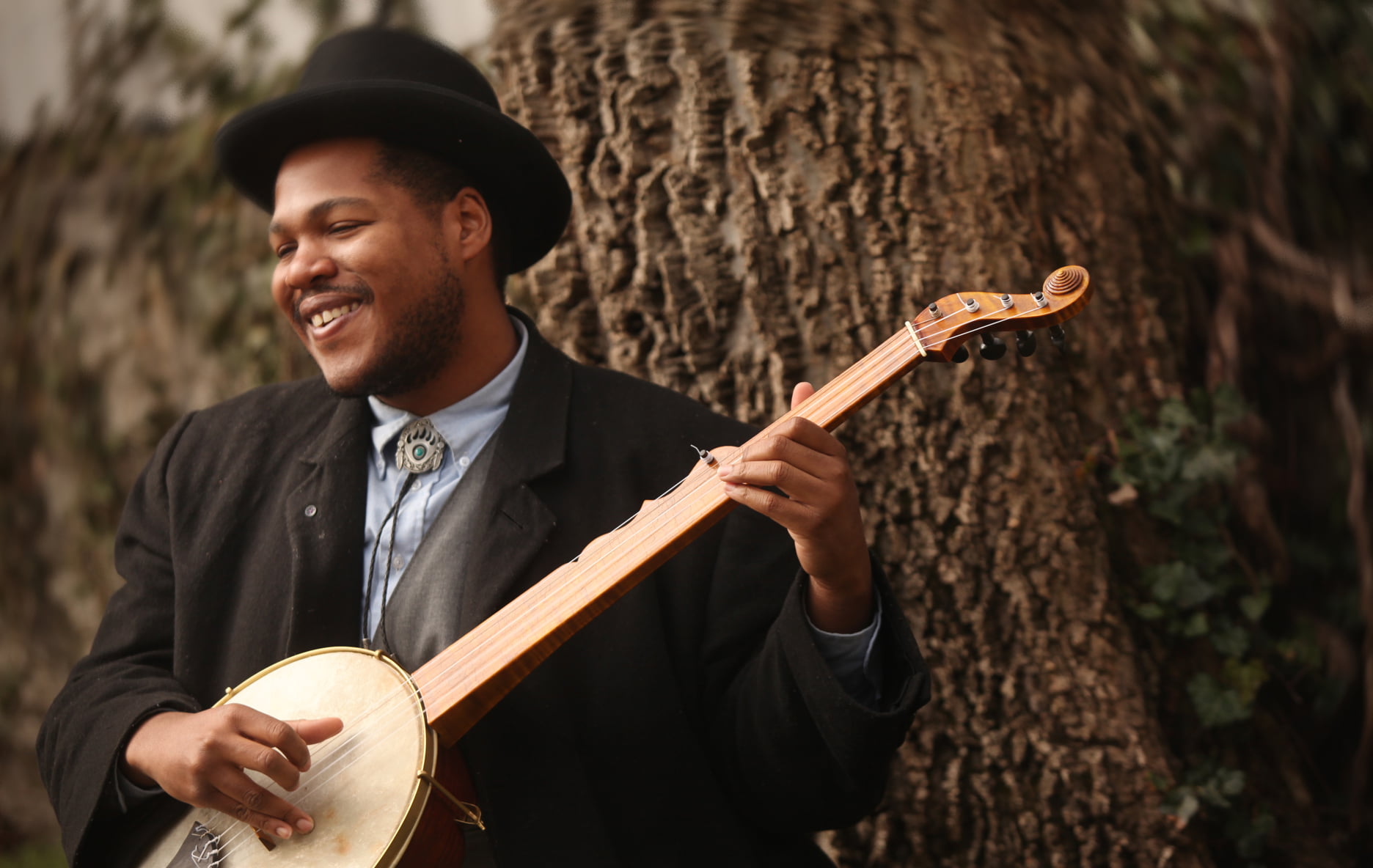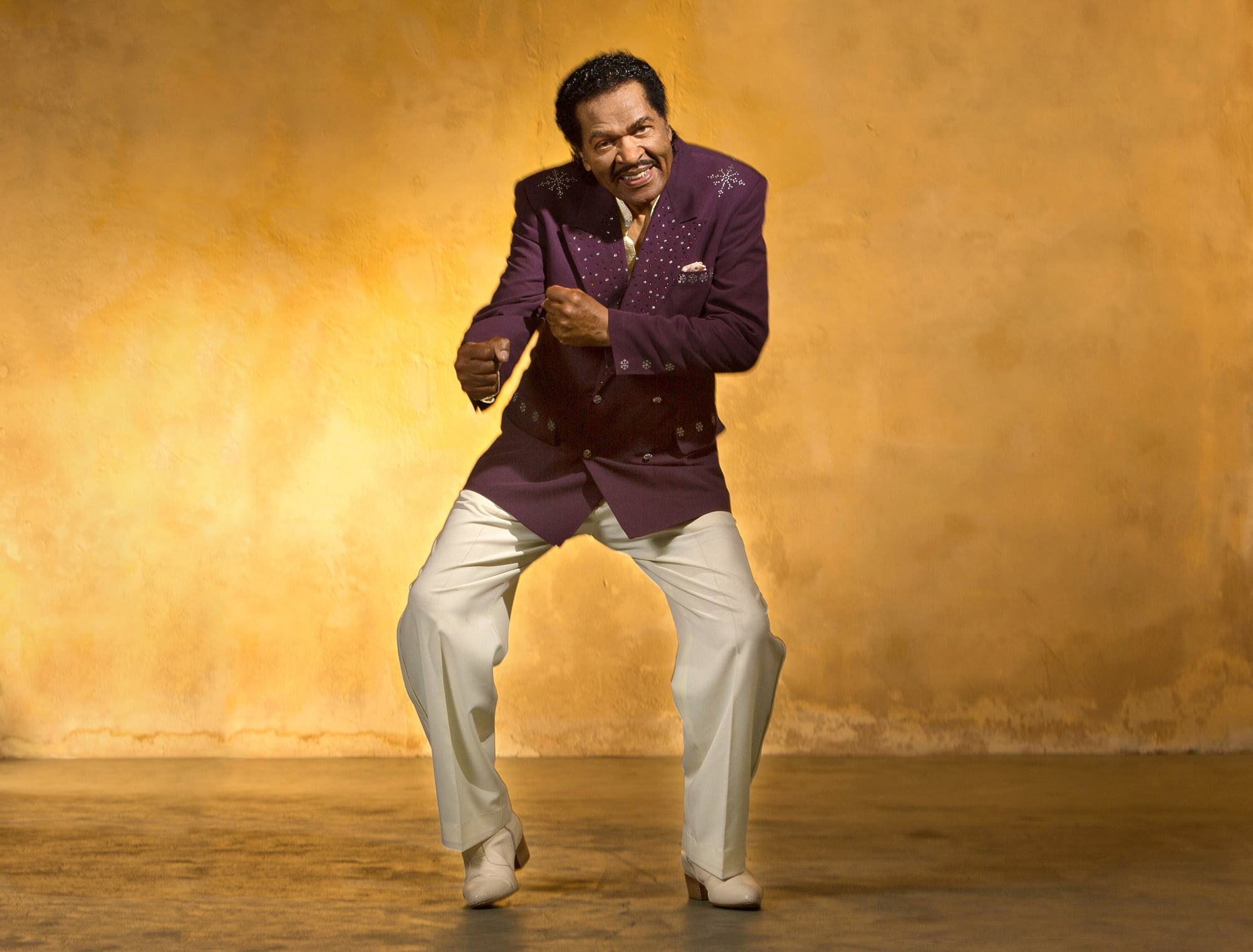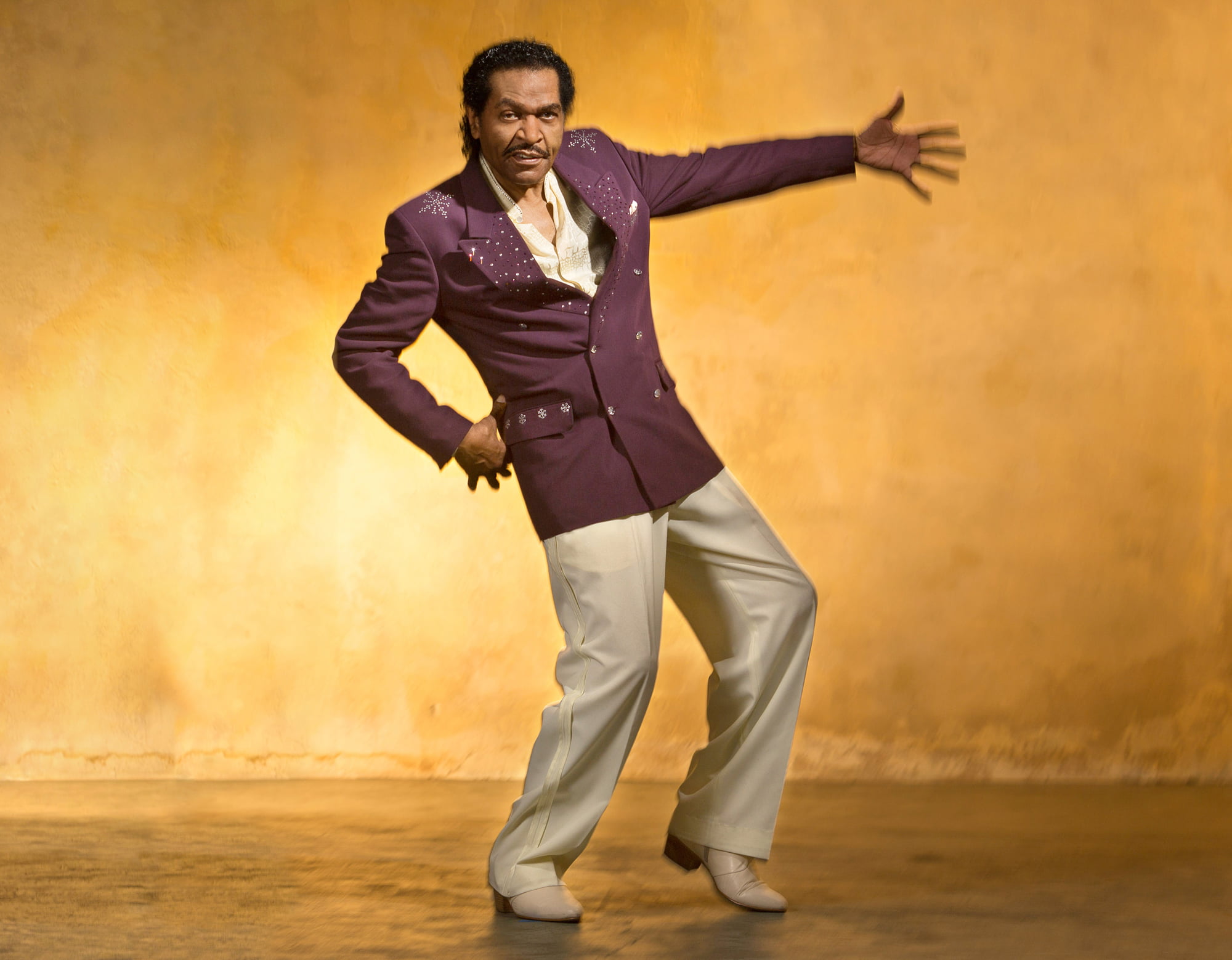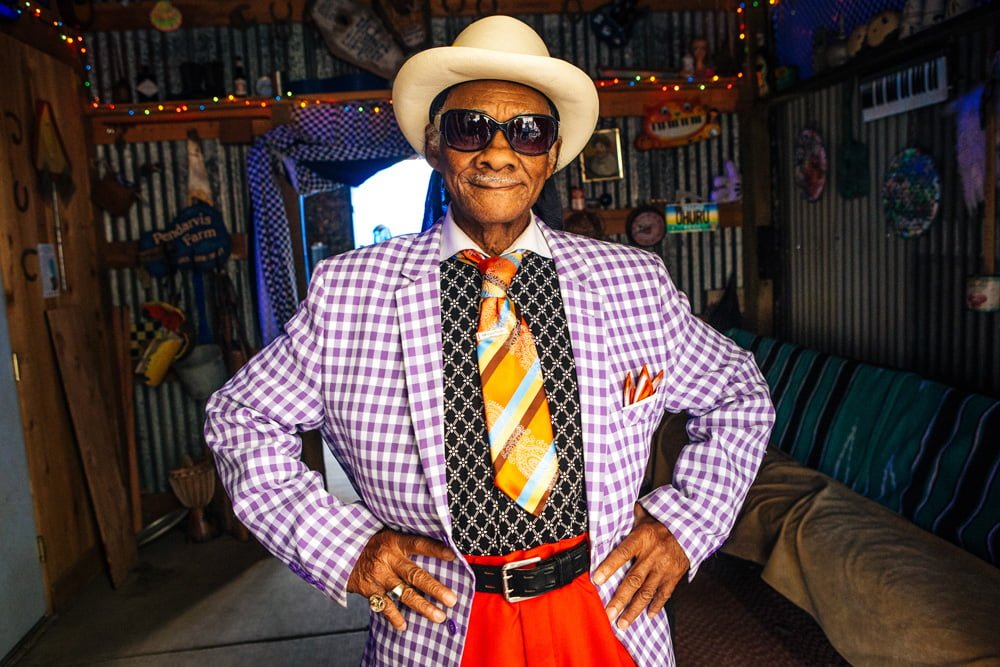At first glance, everything about Jerron Paxton looks and feels like a journey back in time to the early days of roots music, blues, and American folk. His effortless juggling of instruments — from harmonica to fretless banjo, to guitar, to fiddle — his humorous banter, his rustic stage wear, even his on-stage moniker, “Blind Boy” Paxton, all conjure past musical eras. The songs and stories Paxton presents don’t come from dusty songbooks, obscure recordings, or forgotten archives, though. They were each a part of the soundtrack of his childhood growing up in South Central Los Angeles. In an area most famous for hip hop and R&B, a vibrant musical tradition flourished, starting from the deep southern U.S. and traveling along Interstate-10 all the way to L.A.
Paxton’s connection to these songs — to these nuggets of American, African-American, and working-class cultures — shines through his performances and recordings. He is not merely a preservationist mining bygone decades for esoteric material or works that fit a certain aesthetic or brand. He simply takes music that is significant to his identity, his culture, and his experience and showcases it for a broader audience. Its value does not reside solely in its history or in the authentic replication of that history, but also exists in its present, its relevance to modern times, and its future, as well.
The music you make and perform seems like such a time capsule — a distillate of past eras, past times, and past places. How did you come to appreciate, love, and make music like that, growing up in Los Angeles?
That, right there, sort of brings up my perspective, my reality in the sort of music I play. The reason I play that type of music is because I am from Los Angeles. South Los Angeles is home to the largest Creole and Cajun population outside of Louisiana. It also has around 20,000 Choctaw Indians. Most of the Black people from the areas I grew up in, around South Central, were all from the deep South — usually Louisiana, Mississippi, Arkansas, Texas, and Alabama. For us, that’s the music we listened to at the house. That’s just what we called “down home blues.” You couldn’t have a party without down home blues being played. That’s how I was raised.
Most of my friends that play music similar to mine got into it from Bob Dylan or the Anthology of American Folk Music and all that. I didn’t need those things. This music was culturally relevant to me back then, as it is now. I’m starting to realize, as I get older, that I spent most of my youth making friends with older people. Most of them were on their way out. Most of my friends were born between 1916 and 1945. There weren’t any kids on my block, so by the time the first little kid was around, I already had a personality when I was 7 or 8 years old and I already had a type of music I liked, which is what I present to people now. For me, it’s not some cachet in time; it’s the music of my youth, and the music of my present.
People don’t often think of Los Angeles as a place where blues would originate. Why do you think that is?
Well, Los Angeles is way out in the west, for one thing. Most of the nation’s culture is east of the Mississippi, a lot of the time. I think people expect Californians to be a bunch of surfers. We’re a diverse group of people out there. Where I was born, I was closer to Las Vegas and Arizona than San Francisco, so the culture up there was totally new to me. I had never seen such a thing as San Francisco. I grew up thinking there was not much above the 10 freeway. [Laughs]
That’s the road that brought the family from Louisiana to Los Angeles. It made Los Angeles the last stop on the Chitlin Circuit. The furthest west and south you can go on the Chitlin Circuit. There were great artists out there to support it. T-Bone Walker was out there. Lucille Bogan lived for a period out there and was buried out there, same for Johnny St. Cyr. Jelly Roll Morton spent a good deal of the ‘20s out there. We could keep going on and on about great musicians from Los Angeles. It’s a big, diverse place. South Central had some of the best blues and jazz bands in the world. Now we get known for nothing else but hip hop.
Where do you find these songs, besides having grown up with them? Do you ever struggle with finding the right way to care for and curate them in a modern context?
Whew. That’s a big question. [Laughs] I always try to play songs that fit with modern times. My grandmother grew up in the bad ol’ days and very much did not want me to play songs about the bad ol’ days. All of these songs about agriculture and cotton and shit like that, she wanted no part of. She liked all the good country songs. In her generation, songs like “She’ll Be Comin’ ‘Round the Mountain” were big hits.
Me, personally, I take her part in that, and I play the songs that are relevant nowadays — about love, about the world, about nature and the beautiful things. Sometimes music doesn’t always have to be so serious. A lot of music is tunes and ditties and things that just put you in a certain place. The blues is a bit serious, which is why sometimes I shy away from playing and singing them for an audience who have no idea what I’m singing about, usually from a cultural basis. I find myself, when I play for a different audience, having to explain things about older songs. Rather than do that, I’d just play some music that they can understand straight off the bat.
That makes a lot of sense. You are going to have those cultural barriers crop up, from time to time.
I don’t have my audience’s perspective. I can’t really imagine what it’s like growing up any other way than how I did. I can’t put myself, culturally, in their shoes. I’m used to the audiences from where I grew up that just dug straight-up music. That’s how I present it to people. I think that’s why I get a reasonable reaction from the crowd — because I treat them and the music as what it is. It’s good entertainment. They paid to see me do my thing. That’s what I’m gonna do. I’m not gonna change it up too much just because they ain’t part of my culture. If they start doing things, like clapping on the same beat that they stomp on, I tell ‘em, “That’s against the rules.” [Laughs] “You’re a stereotype, and you should stop that.”
You don’t feel that you get pigeonholed as a novelty?
The only pigeonhole I feel, sometimes, is when it comes to the subject of the blues. I love playing the blues. I grew up playing the blues, but I also play a lot of other kinds of music. Just like the people who get called “blues musicians.” They played every kind of music. I’m more modeled after some of them than some people would think.
People would come to see me sometimes and expect to hear a concert of nothing but down home, Muddy Waters, and this-that-and-the-other. They’d say, “Why do you have a banjo? Why do you have a fiddle and harmonica and things like that? Why do you play 18th- and 19th-century pop songs on those instruments?” And I say, “Cause that’s what everybody did!” They played every kind of music. Back then, in the community, they’d never allow themselves to be pigeonholed as “blues musicians.” They were musicians. They could play any type of dance, any type of function necessary. I try to be the same way. That’s what I’m after. I get invited to blues festivals, and I’ll put on a majority-blues show, but I’ll keep it diverse. I’ll play blues on all my instruments and play it in a way you don’t expect.
Where do you see a place for this kind of music, then? So many genres and formats, whether intentionally or unintentionally, tend to exclude more foundational, vernacular forms of music. It’s so primordial. It gave rise to so many other genres. People kind of gloss over it. And, also, through revisionism, so much of it gets left behind. Especially when it comes to Black identities. The music is appropriated and the history gets left behind. Where do you want to see this music go?
I want to see it get to everyone. And I want to see everybody enjoy it. It would be very nice if people from its culture, like myself, would take it up again. There are very few of us. The ones that do, I find, do well. I feel so happy that Kingfish is out there, and my buddy Jontavious Willis is out there. They destroy the blues. They kill those guitars, and they sing beautifully. I think most of that is from understanding. It comes from a certain place. I come from a maternal culture, and it comes from hearing your grandmother sing things, then your parents respond in certain ways, so you understand it on a very personal, very spiritual level. That’s most of the identity in Black culture, these little things. Most of our culture is between each other. A lot of the best parts of it won’t be televised. A lot of the worst parts of it tend to get exploited, because people want to make money off of it.
I’d love to see [the music] go back into the community and see people of the community value their own folk music. I’ve noticed Black culture is one of the few cultures that hasn’t had its folk music presented in a beautiful and proper way. Go to Ireland, Scotland, and even Appalachia, and watch how they treat their music. It’s everywhere. It’s on the radio. It’s in your face. And people are educated about the instruments — everyone has one — and they’re easy to get. But there were no music stores where I grew up where you could get guitars or harmonicas. There was just one or two, and they’ve since gone. A lot of those other places get government help for their arts, to push the arts forward. That’s why you can still have fiddle competitions all over those parts of the country. But there hasn’t been a fiddle contest in South Central for a hundred years. It’s a doozy. And I know the audience also won’t understand it from a cultural level because, to most in the audience, it’s considered throwback music. I think that’s one of the biggest barriers getting it to cross over — that the popular audience, the white Anglo-Saxon Protestants, consider it throwback music that doesn’t really exist as a living, breathing thing anymore.
One thing you touched upon earlier — how did you put it? It’s a funny thing. I hope I don’t upset people [saying this], but it’s a funny thing being one of the exploited peoples in American culture. It’s this crazy paradox in that the real Black music, the music of protest that’s yours and you think of as apart from American culture is so much a part of American Culture that when America uses its mighty power to reach the ends of the earth with its influence, you’re wrapped up in it! Your little folk pride and joy, one of the many cultural musics you’ve put into the world — blues — has gone global. That’s funny enough. It’s a paradox having music that is so foundational to all of American music, that influences people as far as the eye can see — made by a very small, oppressed group of people.
You’re based in New York City now. You’re playing the 10th Annual Brooklyn Folk Festival coming up. How does the New York scene connect with the community that you had in L.A.?
I didn’t have much of a career in Los Angeles. I left Los Angeles, when I finished high school. My career has been in New York City. I moved to New York to play stride piano. It was my favorite kind of music. I’d play stride piano and six-string banjo in a lot of orchestras around here. Hot jazz, ‘20s jazz, is a big thing in New York — still is — and I play it every chance I get. Then my solo career took off, and now I get to present to people the music from when I was a little kid — the down home music I learned at home, sitting on the back porch. I take it all over the place in New York.
I didn’t have a lot of faith that people wanted to hear the music like this. Some wonderful places have opened their doors to me saying, “Oh, no, we dig what you do.” I get a kick out of playing for New Yorkers — they’re very ethnic. They have an accent. They have a culture all their own. They’re their own sort of people. I get a good kick out of playing the blues for them. They have no damn idea what I’m doing, half the time, but they dig it, because they’re people. That’s the thing about what they call “ethnic people.” Ethnic people get to be real people — that’s why they’re ethnic. That’s why Cajuns and Creoles are like that, Appalachian people are like that. Down home Black people and Chicanos, they’re all like that. They can accept the music. That’s what I like best about all branches of folk music. They get it.
Photo credit: Bill Steber



